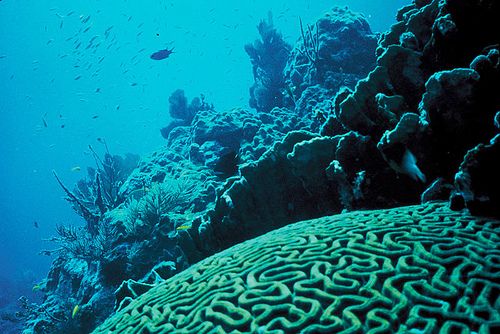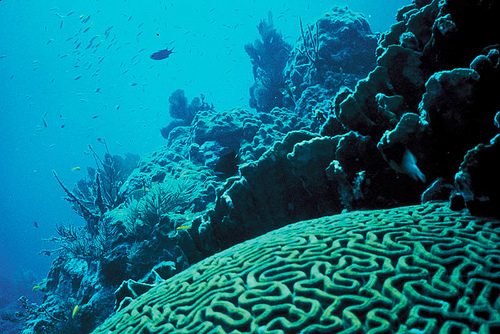Coral reefs under threat worldwide, reveals new study
Pollution, over-fishing, development and climate change are posing a grave threat to the world’s beautiful and valuable ecosystems, according to a new report by the World Resources Institute.

 Nearly 75 per cent of the world’s coral reefs are under threat from pollution, over-fishing, coastal development and climate change, according to a new report (23 February) by the World Resources Institute (WRI) published in partnership with a network of 25 organisations.
Nearly 75 per cent of the world’s coral reefs are under threat from pollution, over-fishing, coastal development and climate change, according to a new report (23 February) by the World Resources Institute (WRI) published in partnership with a network of 25 organisations.
The study found that if left unchecked, more than 90 per cent of reefs will be threatened by 2030 and all reefs could be at risk by 2050.
It found a mix of local pressures (over-fishing, costal development and pollution) and global pressures (rising sea temperatures leading to coral bleaching and increasing ocean acidification from carbon dioxide pollution) threaten the future of reefs.
Lauretta Burke, lead author of the report, said: “Coral reefs are valuable resources for millions of people worldwide. Despite the dire situation of many reefs, there is reason for hope. Reefs are resilient, and by reducing the local pressures, we can buy time as we find global solutions to preserve reefs for future generations.”
Entitled ‘Reefs at Risk Revisited’, the new report updates a 1998 report and includes risks from climate change for the first time. It uses the latest data and satellite information, including a reef map with 64 times higher resolution than the first report.
The updated report identifies the 27 nations most socially and economically vulnerable to coral reef degradation and loss, and unequipped to adapt to the change, including Haiti, Grenada, the Philippines, Tanzania, Fiji and Indonesia.
Reefs in Southeast Asia, where 138 million people live along the coastline, are under particular strain with 95 per cent currently threatened and almost half in the high or very high-risk bracket.
And 25 per cent of reefs are already in the range of parks or reserves, but only 6 per cent of these areas are effectively managed, according to the report.
Authors’ recommendations for future management include better protection of the reefs, including through these parks and reserves. They say they need to work on better protecting those areas already under the schemes and designate new sites where the threats are highest.
The study also states that local problems, which pose the biggest threat, and risk 60 per cent of reefs today, need to be tackled now, followed by measures to combat the global problems, and limit the risks of climate change of the oceans.
Dr Jane Lubchenco, Under Secretary of Commerce for Oceans and Atmosphere and the Administrator of the National Oceanic and Atmospheric Administration (NOAA), said: “This report serves as a wake-up call for policy-makers, business leaders, ocean managers and others about the urgent need for greater protection for coral reefs. As the report makes clear, local and global threats, including climate change, are already having significant impacts on coral reefs, putting the future of these beautiful and valuable ecosystems at risk.”
Image: eutrophication&hypoxia | flickr





